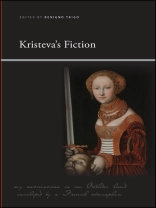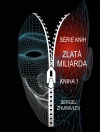Psychoanalytic perspectives on Kristeva’s fiction.
With published work spanning more than forty years, Julia Kristeva’s influence in psychoanalysis and literary theory is difficult to overstate. In addition to this scholarship Kristeva has written several novels, however this portion of her oeuvre has received comparatively scant attention. In this book, Kristeva scholars from a number of disciplines analyze her novels in relation to her work in psychoanalysis, interrogating the relationships between fiction and theory. The essays explore questions including, what is the value of experimental writing that escapes easy definition and classification, putting ideas at the same level as character, pacing, plot, suspense, form, and style? And, how might such fiction help its readers overcome the psychological maladies that affect contemporary society? The contributors make a compelling case for understanding Kristeva’s fiction as a crucial influence to her wider psychoanalytic project.
قائمة المحتويات
Acknowledgments
Introduction
Benigno Trigo
Part I
1. Whodunit? Reading Kristeva with the Help of Detective Fiction
S. K. Keltner
2. Revolution Has Italian Roots: Kristeva’s Fiction and Theory
Carol Mastrangelo Bové
3. Not a Country for Old Men: Scapegoats and Sacrifice in Santa Varvara
Martha Reineke
4. Sebastian’s Skull: Establishing the ‘Society of the Icon’
Frances L. Restuccia
5. From the Agency of the Letter to the Agency of the Icon: Femininity and Bulgaria in Julia Kristeva’s Murder in Byzantium
Ewa Plonowska Ziarek
Part II
6. Noir Analysis: How Kristeva’s Detective Novels Renew Psychoanalysis
Benigno Trigo
7. Fiction, Analysis, Possession, and Violence in Kristeva’s Mirror of Writing
John Lechte
8. Byzantium, or Fiction as Inverted Theory
Miglena Nikolchina
9. The Vital Legacy of the Novel and Julia Kristeva’s Fictional Revolt
Maria Margaroni
Works Cited
Contributors
Index
عن المؤلف
Benigno Trigo is Professor of Spanish at Vanderbilt University. He is the author and editor of several books, including Kristeva’s Fiction, also published by SUNY Press.












